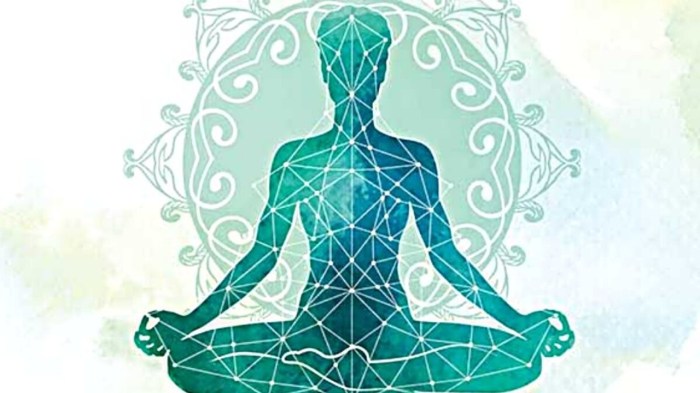With How to Meditate for Achieving Mental Clarity and Focus at the forefront, embark on a journey to unlock the secrets of inner peace and concentration. Dive into the realm of mindfulness and meditation practices that pave the way to a clearer mind and sharper focus.
Explore the transformative power of meditation techniques and breathing exercises that can elevate your mental clarity to new heights.
Introduction to Meditation: How To Meditate For Achieving Mental Clarity And Focus

Meditation is a practice that involves focusing the mind and training attention to achieve mental clarity and inner peace. It offers numerous benefits such as reducing stress, improving emotional well-being, and enhancing concentration. Meditation is essential for achieving mental clarity and focus as it helps in quieting the mind, increasing self-awareness, and promoting a sense of calmness. There are various types of meditation practices, including mindfulness meditation, loving-kindness meditation, transcendental meditation, and body scan meditation.
Setting Up a Meditation Space
Creating a peaceful and comfortable environment for meditation is crucial to enhance the practice and achieve optimal focus. Tips for setting up a meditation space include choosing a quiet and clutter-free area, incorporating elements like plants, candles, or soothing music, and using comfortable cushions or mats for sitting. Decorating the space with calming colors, natural light, and inspiring quotes can also help in creating a serene atmosphere conducive to meditation.
Breathing Techniques for Meditation
Deep breathing plays a significant role in meditation for mental clarity as it helps in calming the mind and regulating emotions. Different breathing techniques such as diaphragmatic breathing, alternate nostril breathing, and box breathing can be practiced during meditation to promote relaxation and focus. Proper breathing can aid in reducing stress, improving oxygen flow to the brain, and enhancing concentration during meditation sessions.
Mindfulness Practices for Mental Clarity
Mindfulness is the practice of paying attention to the present moment without judgment, which can greatly contribute to achieving mental clarity. Incorporating mindfulness exercises like mindful breathing, body scan meditation, and mindful walking into meditation practice can help in staying present, reducing distractions, and enhancing focus. Mindfulness allows individuals to cultivate a sense of awareness, acceptance, and focus on the present experience.
Guided Meditation for Focus
Guided meditation is a helpful tool for enhancing mental clarity and focus as it provides structured guidance and support during meditation sessions. Finding guided meditation sessions online or through apps can assist individuals in deepening their practice, improving concentration, and reducing stress. Engaging in guided meditation can have a positive impact on enhancing focus, concentration, and overall well-being.
Body Scan Meditation Techniques
Body scan meditation involves systematically focusing on different parts of the body to increase awareness, relaxation, and mental clarity. This practice helps individuals to release tension, reduce stress, and connect with their physical sensations. Performing a body scan meditation involves lying down or sitting comfortably, bringing attention to each body part sequentially, and observing any sensations without judgment. Body scan meditation can enhance mindfulness, focus, and self-awareness during meditation practice.
Overcoming Distractions in Meditation, How to Meditate for Achieving Mental Clarity and Focus
Dealing with distractions during meditation is common, but there are strategies to refocus the mind and cultivate a focused mindset. Identifying common distractions like noises, thoughts, or physical discomfort can help in addressing them effectively. Techniques such as acknowledging distractions without judgment, gently redirecting attention to the breath or a focal point, and practicing self-compassion can aid in overcoming distractions and maintaining focus during meditation.
Tracking Progress and Consistency
Tracking progress in meditation practice is essential for monitoring growth, staying motivated, and cultivating consistency. Maintaining a meditation journal, setting specific goals, and tracking meditation sessions can help in assessing progress and identifying areas for improvement. Consistency in meditation routines is key to experiencing long-term benefits such as mental clarity, focus, and emotional well-being. Regular practice contributes to developing mindfulness skills, enhancing concentration, and achieving inner peace.
In the quest for mental clarity and focus, the path of meditation unveils a world of serenity and sharpness. Embrace the stillness within and harness the power of mindfulness to navigate life with clarity and purpose.
When it comes to staying calm in stressful situations, meditation can be a powerful tool. By practicing mindfulness and deep breathing, you can learn to center yourself and find peace amidst chaos. If you’re looking for techniques to help you stay calm, check out this article on How to Meditate to Stay Calm in Stressful Situations.
When it comes to meditation, there are various techniques that can help enhance creativity. One essential technique is to practice mindfulness and focus on the present moment. By doing so, you can tap into your inner creativity and unleash new ideas. To learn more about how to meditate for creativity, check out this helpful guide on How to Meditate for Creativity: 6 Essential Techniques.
Another important aspect of meditation is learning how to stay calm in stressful situations. By incorporating meditation into your daily routine, you can develop a sense of inner peace and resilience. This can help you navigate through challenging circumstances with a clear mind and focus. For tips on how to meditate to stay calm in stressful situations, visit How to Meditate to Stay Calm in Stressful Situations.
One key benefit of meditation is its ability to help you stay present and focused. By practicing mindfulness meditation, you can train your mind to concentrate on the present moment, rather than getting lost in worries about the past or future. This can improve your attention span and overall productivity. To learn more about how to meditate for focusing on the present moment, check out this insightful resource on How to Meditate for Focusing on the Present Moment.